Gardeners Shepperton: Cultivating Beauty in Every Garden
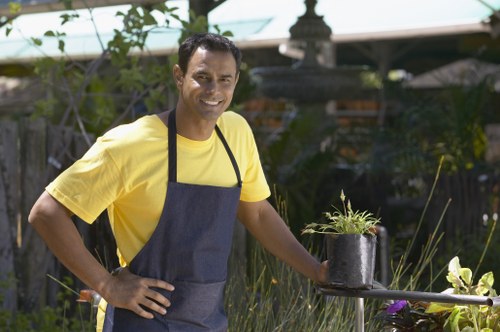
Welcome to the vibrant world of gardeners in Shepperton, where passion for plants meets expert craftsmanship. Whether you're a seasoned green thumb or just starting your gardening journey, Shepperton offers a wealth of resources and skilled professionals to help your garden thrive.
Shepperton, a picturesque town nestled along the River Thames, boasts a rich history and a strong community of gardening enthusiasts. The area's favorable climate and fertile soil make it an ideal location for cultivating a diverse range of plants, from colorful flowers to robust vegetables.
In this article, we'll explore the various aspects of gardening in Shepperton, including top gardening services, local plant nurseries, community gardens, and tips from expert gardeners. We'll also highlight nearby areas that complement Shepperton's gardening scene, providing you with a comprehensive guide to creating and maintaining a beautiful garden.
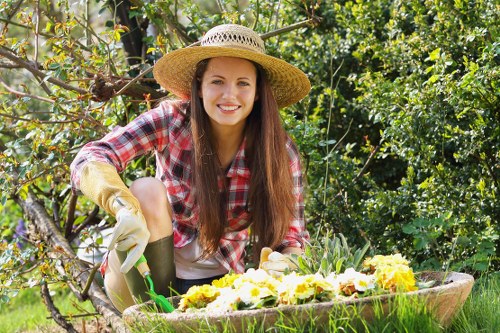
Top Gardening Services in Shepperton
Shepperton is home to a plethora of gardening services that cater to different needs, whether you're looking to design a new garden, maintain an existing one, or tackle a specific gardening project.
Garden Design and Landscaping: Professional garden designers in Shepperton can help you create a customized garden layout that reflects your personal style and maximizes the use of space. From selecting the right plants to designing hardscapes like patios and pathways, these experts ensure your garden is both functional and aesthetically pleasing.
Lawn Care and Maintenance: Maintaining a healthy lawn requires regular care, including mowing, fertilizing, and pest control. Shepperton's lawn care services offer comprehensive maintenance packages to keep your grass lush and green throughout the year.
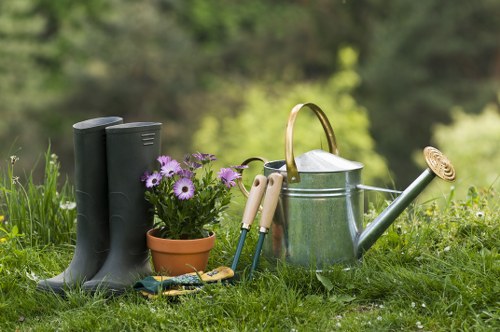
Local Plant Nurseries in Shepperton
One of the joys of gardening is selecting the perfect plants for your garden. Shepperton boasts several local plant nurseries that offer a wide variety of plants, from seasonal flowers to hardy perennials.
These nurseries not only provide quality plants but also offer expert advice on plant selection, care, and placement. Whether you're looking for native plants that thrive in Shepperton's climate or exotic species to add a unique touch to your garden, you'll find plenty of options locally.
Additionally, many nurseries in Shepperton host workshops and events, providing opportunities for gardeners to learn new techniques and stay updated on the latest gardening trends.
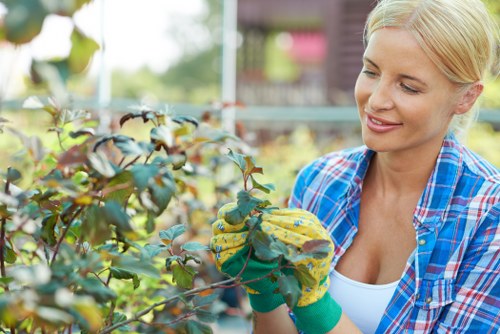
Community Gardens and Gardening Groups
Gardening in Shepperton is more than just a hobby—it's a community affair. Community gardens offer spaces where residents can collaborate, share resources, and grow together. These gardens are perfect for individuals who may lack the space or resources to maintain a private garden but still wish to experience the joys of gardening.
Joining a local gardening group connects you with other enthusiasts who share tips, host events, and support each other in their gardening endeavors. These groups often organize plant exchanges, communal planting days, and educational sessions, fostering a sense of camaraderie and collective growth.
Participating in community gardening not only enhances your gardening skills but also strengthens community bonds, making Shepperton a greener and more connected place to live.
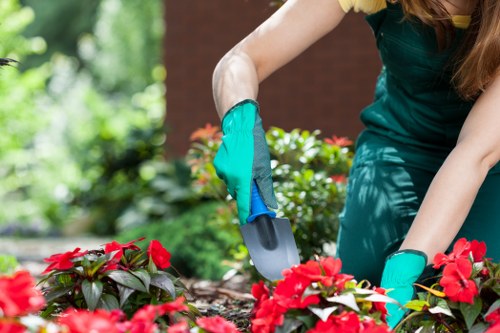
Expert Gardening Tips for Shepperton Gardens
To ensure your garden thrives in Shepperton's unique environment, here are some expert tips from local gardeners:
- Choose Native Plants: Native plants are well-adapted to Shepperton's climate and soil conditions, making them easier to care for and more resilient against pests and diseases.
- Plan for Seasonal Changes: Understanding the seasonal variations in Shepperton allows you to select plants that bloom at different times, ensuring your garden remains vibrant year-round.
- Implement Sustainable Practices: Utilize composting, rainwater harvesting, and organic fertilizers to promote a healthy and environmentally friendly garden.
- Regular Maintenance: Consistent upkeep, including pruning, weeding, and pest management, is essential for maintaining a flourishing garden.
Maximizing Space in Your Shepperton Garden
If you're working with limited space, consider vertical gardening techniques, such as trellises for climbing plants or hanging planters for flowers and herbs. Efficient use of space can lead to a more productive and visually appealing garden.
Soil Health and Preparation
Healthy soil is the foundation of any successful garden. Test your soil's pH levels and nutrient content, then amend it as necessary with organic matter and fertilizers to ensure optimal plant growth.

Nearby Areas Enhancing Shepperton Gardening
Shepperton's gardening community is further enriched by its proximity to several neighboring areas, each offering unique features and opportunities for gardeners:
- Chertsey: Just a few miles away, Chertsey provides additional plant nurseries and gardening centers, expanding your options for high-quality plants and gardening supplies.
- Staines-upon-Thames: Known for its beautiful riverside gardens, Staines offers inspiration and resources for gardeners seeking to incorporate water features into their designs.
- Hampton: Hampton's expansive green spaces and parks serve as excellent venues for community gardening events and outdoor workshops.
- Sunbury-on-Thames: This nearby area features several botanical gardens and arboretums, perfect for studying plant varieties and gaining gardening inspiration.
- Feltham: Feltham hosts a variety of gardening fairs and expos, providing opportunities to discover new plants and connect with local gardening experts.
- Twickenham: Home to Richmond Park, Twickenham offers vast natural areas where gardeners can explore native plant species and sustainable gardening practices.
- West Molesey: West Molesey is renowned for its ornamental gardens and flower shows, ideal for gardeners interested in ornamental horticulture.
- Old Windsor: The historic gardens of Old Windsor provide a glimpse into traditional British gardening techniques and layouts.
- Bray: Bray's community gardens are a testament to collaborative gardening efforts, inspiring Shepperton gardeners to engage in similar initiatives.
- East Sheen: East Sheen offers specialized gardening workshops and courses, ideal for those looking to expand their gardening knowledge and skills.
- Laleham: Laleham's green spaces and private gardens serve as quiet retreats for gardeners seeking peace and inspiration.
- Whitton: Whitton's urban gardens demonstrate innovative gardening solutions for small spaces and city environments.
- Byfleet: Byfleet's thriving gardening community hosts regular plant swaps and gardening meet-ups, fostering a supportive network for gardeners.
- Longcross: Longcross's proximity to local markets allows gardeners to sell their produce and share their gardening successes with the community.
Frequently Asked Questions about Gardeners in Shepperton
1. How can I find a reliable gardener in Shepperton?
Start by asking for recommendations from friends, family, or neighbors. You can also check online reviews and visit local plant nurseries or gardening centers for referrals to trusted gardeners in the area.
2. What types of plants thrive in Shepperton's climate?
Shepperton's climate is suitable for a wide variety of plants, including native species like lavender, roses, and hydrangeas. Additionally, vegetables such as tomatoes, beans, and leafy greens grow well here.
3. Are there any community gardening projects I can join in Shepperton?
Yes, Shepperton has several community gardens where residents can collaborate on gardening projects. Check with local community centers or gardening groups to find opportunities to participate.
4. What are the best seasons for planting in Shepperton?
Spring and autumn are ideal for planting in Shepperton. Spring offers a longer growing season, while autumn allows plants to establish roots before the colder months.
5. How can I make my Shepperton garden more sustainable?
Implement sustainable practices such as composting kitchen waste, using rain barrels to collect water, choosing native and drought-resistant plants, and avoiding chemical pesticides and fertilizers.
